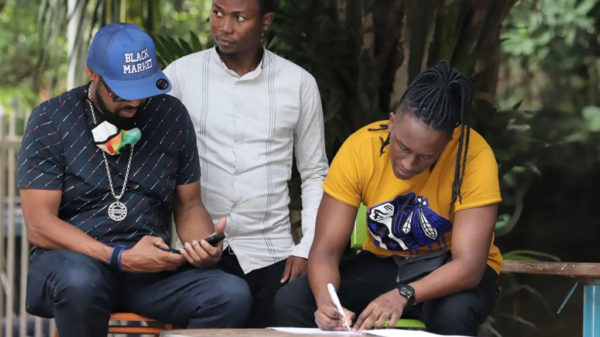
Loukman Ali
Two weeks ago, many Ugandans learnt about a local film. Loukman Ali’s The Girl in the Yellow Jumper.
This was the second time Ugandans cared about a local film, the first time was in 2018 after Uganda got her first Academy Selection Committee. Their work is to select a film to represent Uganda at the academy awards, also popularly known as the Oscars.
The committee had controversially selected Kony Order From Above as Uganda’s first representative at the film’s biggest stage. But there were requirements this film had to fulfil, such as a seven-day screening at cinemas.
The possibility of a Ugandan film at the Oscars had excited many that politicians, corporate companies had picked interest in the film. The cinemas were filled from the day the film opened to the last day of screening seven days later.
The other times Ugandans have been invested in local films, has been about foreign films where a big number of Ugandans served as cast members.
These were films such as Queen of Katwe, Escape From Luzira and The Last King of Scotland.
Then last week, there was Loukman’s The Girl in the Yellow Jumper – the film starring Michael Wawuyo Jnr, Michael Wawuyo, Gladys Oyenbot, Maurice Kirya and Rehema Nanfuka tells the story of a man who is drugged and kidnapped while watching TV.
When he manages to flee, he returns home with a tale to tell.
The film is Uganda’s first film on streaming giant Netflix and sections of film enthusiasts are excited, others are figuring it out while there are many who are wondering why anyone should care.
What’s the fuss?
Netflix is an American subscription streaming service and production company that offers a library of films and television series. The company is known for being secretive about their data. For instance, it has been hard to establish which film was successful on the platform for years and in the same way, they rarely release data of subscription in specific countries or continents.
Because of the Covid-19 pandemic, the streaming site is said to have gained 37 million subscribers, which enabled it to pass the 200 million customer mark for the first time worldwide.
By October 2021, the platform had at least 214 million active subscribers worldwide.
There are no published number of subscribers on the platform from the African continent, yet, with the cult success of the first original productions by Netflix such as Queen Sono and Blood and Water Season One and Two, it is proof there is a cult following.
Loukman believes the very first reason most Ugandans should care is the fact that Netflix comes with a vast audience who will be introduced to the Ugandan content.
Many film enthusiasts, even when they are excited about The Girl in the Yellow Jumper, are still worried about Uganda’s buying culture. For instance, many prefer pirated works compared to buying or streaming content.
But Loukman thinks less about the number of Ugandans that will or not watch The Girl in the Yellow Jumper. In fact, he is more bothered by the fact that this was his first film, one he made when he was still finding his voice as a storyteller.
“It’s been long since we made this film,” Ali said during an interview.
He says they faced a lot of challenges during production, for instance, they ran out of money and paused production for close to eight months.
“When we had to resume production, some people refused to come back and we had to look for ways of replacing them,” he says.
The bigger picture
Thus, even when many people were happy Uganda finally got a film on Netflix, the director has his reservations, “there were many things I was yet to learn, which I think I have fixed with the films I have made after that.”
But he is very optimistic about the future, for example, he says Uganda needs at least one more film on the platform to change the film narrative for good.
“There are many opportunities here, for instance, Uganda could be a small market, but Netflix could hire our talented cast and crew for an original production set in a different country,” he says, adding that having a Ugandan film on the platform is our way of announcing that we can do what Nigerians and South Africa do.
In January 2016, Netflix arrived in Africa, only months after Multichoice Africa had launched Showmax in South Africa on August 15, 2015. Plus iRokoTV was in the picture.
Like Netflix, Showmax is a subscription video on demand service whose niche and strength is in localisation of content. iRokoTV on the other hand is a web platform that provides paid for Nigerian films on demand.
Over time, streaming platforms have come along but because many have not heavily invested in promoting their services, the biggest players in Uganda for instance remain Showmax, and other players such as Yo TV or Airtel TV do not acquire content.
Loukman believes if Netflix acquires more Ugandan content, film makers will have a bargaining power unlike today where most sell to the only available one, but he is also quick to note that this will also be a call to them to improve their work.



























































